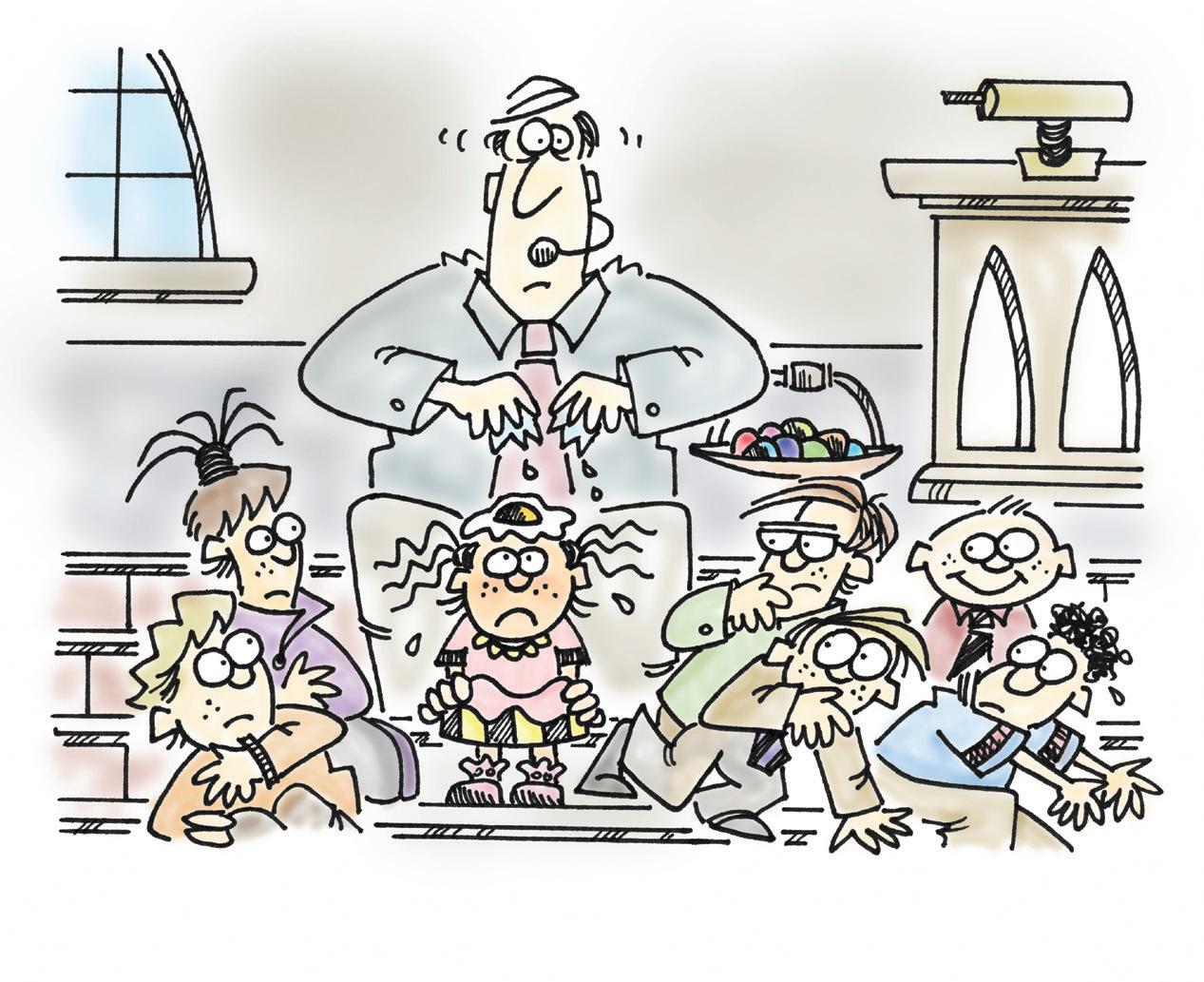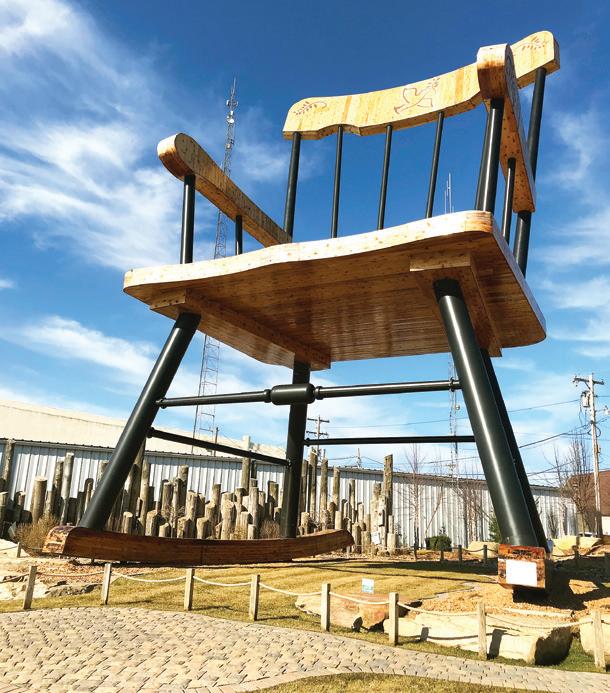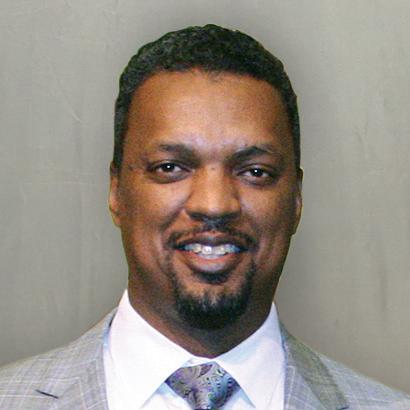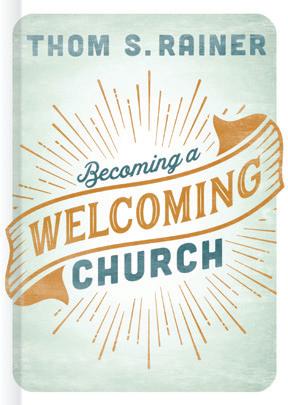
7 minute read
It’s true, we are all exhausted
A USA Today article confirmed what I’ve been thinking: I’m tired. I’m tired of bad news, the 24-hour news cycle, shootings, Congress, Tweets, screens, talking heads, arguments, and politics. I’m tired of zealots, protests, terrorists, bombings, and assassinations. I’m tired of hurricanes, wildfires, blizzards with names, missile testing, election meddling, special investigations, and dictators. And it turns out I’m not alone. We’re all exhausted, according to that Jim Beckerman article, and it’s not getting any better.
gion. The Ten Commandments weren’t enough; the Jewish teachers had mounted up 613 rules for daily living that still couldn’t keep adherents in right relationship with God. The yoke Jesus offers is his own teaching, by comparison easy, like well-fitting shoulder gear, and lightweight.
Advertisement
follow the example of Jesus, who, by his definition, is gentle and lowly. When we spend time with Jesus, learn more of Jesus, and live like Jesus, we find real rest.
As the writer of Hebrews points out, we’ve been seeking rest since God’s people fled Egypt.
“For if Joshua had given them rest, God would not have spoken later about another day. Therefore, a Sabbath rest remains for God’s people…Let us then make every effort to enter that rest…” (Heb. 4:8-9, 11 CSB).
For believers, there is rest in eternity, but in the spirit of “abundant life,” there is rest now as well. The key, I think, is “keeping company.”
Cross-shaped love
Read: Matthew 22:36-40
Doctors report we’re losing sleep, gaining weight, and suffering anxiety in greater numbers. We toss and turn and fret and work up a sweat. “There is a sense of danger,” one therapist said, “that we’re living in very dangerous times.” And no one is predicting relief anytime soon. Which makes these words all the more important:
Come unto me.
If any period in biblical times seems to mirror our own, it’s the first century, especially in Israel. A massive empire is in charge, a foreign power ruling from a distance, but the Pax Romana seems a farce. The peace of Rome?

What peace? Troops march in the streets of all the major cities to keep a lid on the boiling pot. And in Jerusalem, the local government is threatened by activists plotting political and religious takeover. Thinkers are searching for solutions, and regular people want deliverance. Not even their religion offers relief. If anything, it only adds to the weight they carry, piling rules upon rules, and making daily life harder.
In this environment, Jesus says, “Come unto me, all ye who are weary and heavy laden.” That is an address to an ample and ready audience. What he says next is especially nervy: “I will give you rest.”
The text in Matthew 11 is familiar and beloved. The rest Jesus offers is from the burden of reli-
But it’s not only a new teaching the itinerant rabbi offers. Jesus gives himself as a living example.
“Learn from me, for I am gentle and lowly in heart.”
In The Message, Eugene Peterson phrases it this way: “Are you tired? Worn out?...Come to me. Get away with me and you’ll recover your life. I’ll show you how to take a real rest. Walk with me and work with me—watch how I do it. Learn the unforced rhythms of grace. I won’t lay anything heavy or ill-fitting on you. Keep company with me and you’ll learn to live freely and lightly.”
In times like these, we need especially to keep company with Jesus. The answer for our trying times is not to add more strident voices to the cacophony, but to
This scene in Matthew isn’t the only time Jesus invited his followers to escape the fray. “Come away by yourselves to a remote place and rest awhile,” Mark recorded as Jesus’ response to a frantic season of ministry (Mark 6:31). His disciples were so busy tending and teaching that they didn’t have time to eat. Jesus, the rest-giver, declared a Sabbath. Sounds good to me.
On a country road outside the small town where my mother grew up is a white wooden church on the flat top of a rise. It’s called Pilgrim’s Rest. Halfway to the next largest town, it seems a good place to pull the wagon off the road and give the horse a drink, before attempting the second half of the journey. Here, pilgrims rested. And a few learned to live there permanently.
Perhaps that’s what we need in these tiring times: to pull off the road, camp out with Jesus, and rest awhile.
Eric Reed is editor of the Illinois Baptist.
Jesus is asked what is the greatest commandment. In his answer, Jesus teaches us that there are two things we must do individually and collectively in order to live a life that glorifies God. First, we must love God; and second, we must love our neighbors as ourselves. Our love for God is vertical; our love for neighbor is horizontal, so we are called to live out a cross-shaped love.
Love is not simply an emotional attachment. We get emotional about politics, we get emotional about football games, we get emotional when we hear certain songs; but love is more than emotions, love is action.
Love is an unconditional commitment to an imperfect person in which one gives oneself to another to bring the relationship to God’s intended purposes.
And you know what I’ve learned over the years? You can fake the vertical for a while and fool a few people, but you can’t fake the horizontal. God knows when you are faking and soon those close to you will know you are faking too.
Jesus says we are to love God with everything, but he doesn’t stop there; in order to display our love for God we are to love our neighbors.
These two commandments are an antidote for pride. Loving God and loving others keeps us from being infatuated with ourselves and creating idols of our preferences. Loving God and loving others causes us to stretch beyond our comfort zones and love people who don’t look like us or live like us. Loving God and loving others pushes us to live out a cross-shaped love that reflects the Savior who laid down his life in order to save you and me. Our vertical love for God is the basis for our horizontal love for one another. “We love because he first loved us” (1 John 4:19 ESV).
PRAYER PROMPT: Heavenly Father, our perfect example of love, teach us to be living epistles of cross-shaped love. May it start with your church and then overflow into our homes, and our communities.
Adron Robinson is pastor of Hillcrest Baptist Church in Country Club Hills and president of the Illinois Baptist State Association.

Easter is almost here, and many churches are preparing for the big day. They’re sprucing up and preparing for additional worshippers. But are our churches really “guest ready”? A woman who moved recently tells of visiting several churches, only to find that she wasn’t greeted by anyone, had a hard time finding her way around, and left without an invitation to a small group or any real means of connection.
From what she described, you could get a better welcome at Lowes.
Maybe we need a refresher on how to make guests feel welcome. Now, the Sunday before Easter, is the time to have a holy huddle with the regulars and review a few rules on “Welcome 101.”
LifeWay’s Thom Rainer has just released a book on that subject: Becoming a Welcoming Church. He says many things we would expect about good parking and clear signage. But it’s the attitude our church’s people display toward new people that really sticks. A smile and a heartfelt handshake go a long way.

In a related podcast, Rainer urges these 9 things for regular attenders:

1. Pray as you enter the property.
2. Park at the most distant spot.
3. Greet people.
4. Look for people to help.
5. Sit close to the front of the worship center.
6. Sit in the middle of the row.
7. Sit closely.
8. Volunteer to serve.
9. Pray as you leave.
– This list is from “Rainer on Leadership” #414
Growing up, letting go have to go to work.”
“IThe 2-year-old in our house pushes her hair away from her face, shoulders a miniature pink backpack, and starts trudging to the back door.

“Don’t go!” we say. “Stay here with us. It’s almost time for dinner.”
She replies, dutifully, “No. I have to go.”
She’s growing up—fast. And she’s not the only one. Everywhere you look, young people are taking on big responsibilities previously reserved for people older than they are. High schoolers take college courses. Tweens have detailed social calendars, and the mobile devices to manage them. There is a 6-year-old who made $11 million last year marketing toys on YouTube.
Some kids are tackling the most pressing issues of our day, the most recent example being the Florida teens campaigning for an end to school violence like the shooting that devastated their community earlier this year.
As an adult, especially as a parent, it’s easy to want to lock the doors, pull down the shades, and resolve to just make life work in- side our house for the next 15 years.
At Children’s Missions Day this month, I saw evidence that many parents aren’t parenting like that. Hundreds of mini-missionaries worked in 16 locations across Illinois, baking cookies, tending yards, delivering care packages, and visiting nursing homes—all in the name of sharing God’s love with people who might need to hear about it.
My 2-year-old went with me to take photos at one of the sites that day, and I watched her watch the older kids. On the way home, I heard her voice from the backseat: “When I get older and bigger, can I do projects?”
Her question begs an answer—and a commitment— from her parents. To let her grow up and exercise the faith we pray she’ll make her own one day. To trust that God has a plan for her life that may include going somewhere we’ve not been, and can’t go along.
In a scary world, it’s a heavy commitment. We have time to get used to the idea, but not as much as we once did. They’re growing up fast.










